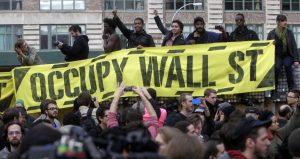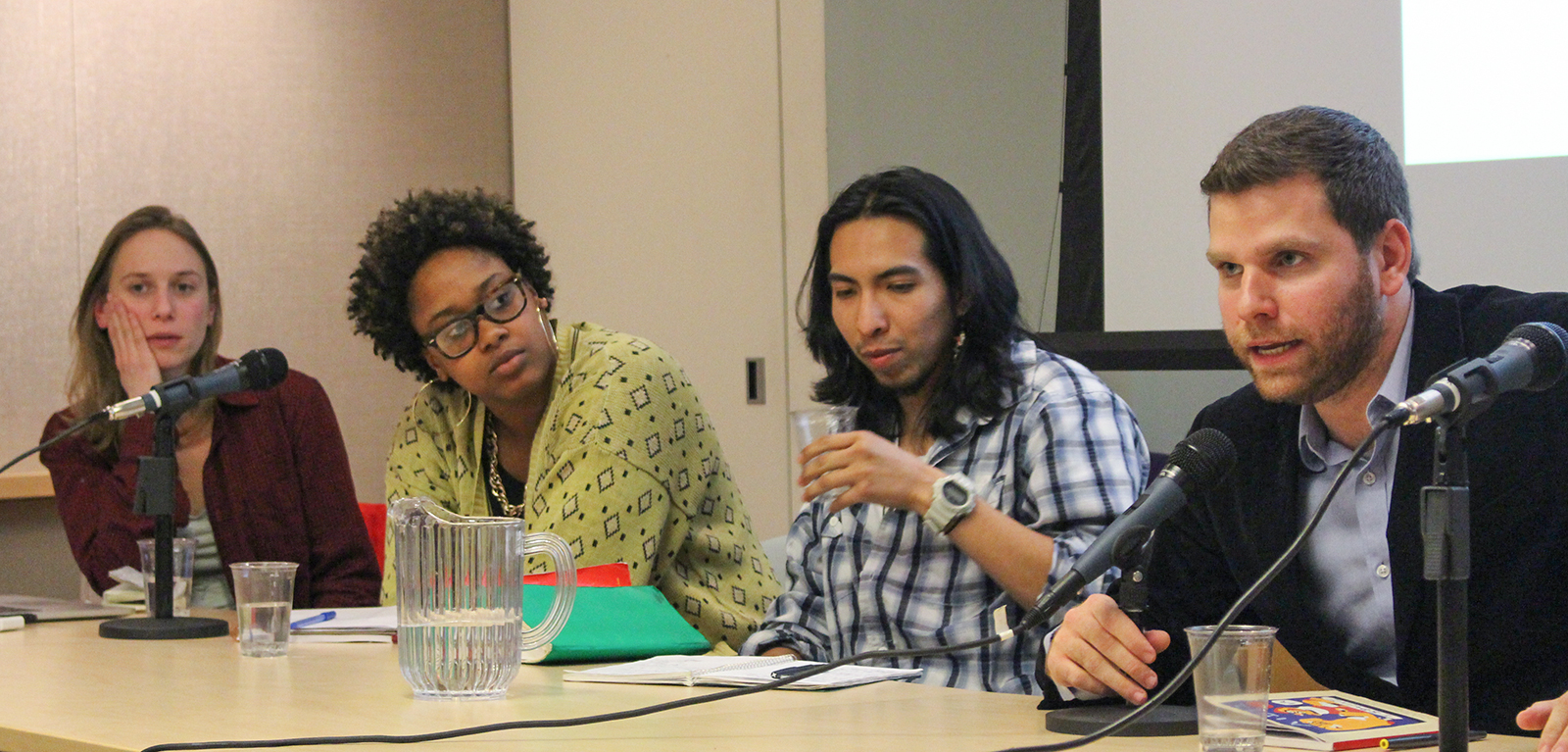 Examining the influence of the Occupy Movement, panelists Laura Gottesdiener, Diego Ibanez, Michelle Crentsil discuss the “people power” movement and its theory for grassroots change…
Examining the influence of the Occupy Movement, panelists Laura Gottesdiener, Diego Ibanez, Michelle Crentsil discuss the “people power” movement and its theory for grassroots change…
The event The Occupiers: The Making of a 99 Percent Movement celebrated the publication of sociologist Michael Gould-Wartofsky’s new book, The Occupiers (Oxford University Press, 2015.) Bringing together panelists Laura Gottesdiener, veteran of the People’s Kitchen and author of A Dream Foreclosed (Zuccotti Park Press, 2013); Diego Ibanez, co-founder of Occupy Sandy and the Occupy Wall Street Immigrant Worker Justice Working Group; Michelle Crentsil co-founder of the Occupy Wall Street People of Color Working Group; moderator Bhaskar Sunkara,editor and publisher of Jacobin Magazine; and Gould-Wartofsky himself, the event examined the ways in which Occupy Wall Street built and has maintained influence today.
The panel opened with a discussion of the personal as the political and how each of the panelists found themselves participating in Occupy Wall Street. Ibanez explained that he had been looking for an example of “people power” and found it through the Occupy movement. The idea of “people power” and cooperative, grassroots change resonated throughout the rest of the discussion. While each panelist spoke about his or her own path through, with. and beyond Occupy Wall Street, the participatory and personal nature of the movement kept recurring.
When the event moved into the Q&A portion, one of the first questions posed to the panel was whether Occupy’s legacy would be understood as a movement based on street activism, or whether eventually it would transition into legislation and electoral politics. The panel was not unanimous, with Ibanez demonstrating wariness about an electoral path and Gottesdiener proving more sanguine about the possibility. Perhaps this divergence of opinion speaks to the fundamentally personal nature of Occupy Wall Street. Although it was a reaction against institutional forces, it was a movement based on individual voices and stories, rooted community-based solutions to issues of inequality, rather than institutional ones.
It’s fitting that the panel blended theory and scholarship with personal history and personality. Gould-Wartofsky’s comprehensive and meticulous book seeks to draw from this strength, allowing people to speak for themselves by amplifying voices that might have been marginalized otherwise.
— Melissa Bean

